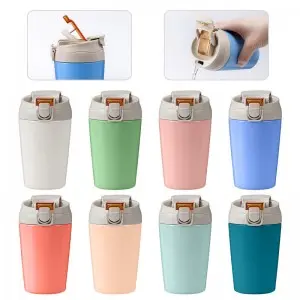In the fast-paced world we live in today, the environmental impact of plastic bottles cannot be ignored. The overproduction and improper disposal of plastic bottles has contributed to a growing pollution crisis. However, there is hope in this issue – recycling. In this blog, we take a deep dive into the fascinating process of how plastic bottles are recycled and turned into useful products, emphasizing the importance of recycling in reducing waste and protecting the planet.
1. Collection and arrangement:
The first step in the plastic bottle recycling journey is collection and sorting. After the bottles are thrown into recycling bins, they are collected by waste management companies and sent to recycling centres. Here, they are sorted by plastic type through automated scanning and manual inspection, ensuring that only bottles made of the same resin group are processed together.
2. Chopped and cleaned:
After the sorting process, the plastic bottles are shredded and washed. They are fed into a machine that cuts them into small pieces called flakes or pellets. The flakes are then subjected to a thorough cleaning process to remove impurities such as dirt, labels and residual liquids. Dry the cleaned flakes in preparation for the next stage.
3. Melting and extrusion:
The dried flakes are then melted and converted into molten plastic through a process called extrusion. Molten plastic is forced through tiny holes to form thin strands or strands, which then cool and solidify to form plastic pellets or beads. These particles can be used as building blocks for the manufacture of new plastic products.
4. Make a new product:
These plastic pellets are now used to make a variety of products. They can be melted and molded into a variety of items, such as new plastic bottles, containers, packaging materials, clothing fibers, carpet, and even furniture. The versatility of recycled plastics encourages a circular economy, reduces reliance on virgin plastics, and effectively prevents additional waste.
5. Benefits of recycling plastic bottles:
Recycling plastic bottles has many environmental benefits. First, it significantly reduces the need for virgin plastic production, saving valuable natural resources like oil and gas. In addition, recycling saves energy and reduces greenhouse gas emissions associated with the production of new plastics. Additionally, recycling prevents plastic bottles from ending up in landfills or polluting our oceans, thereby minimizing adverse impacts on ecosystems and wildlife.
6. Promoting a sustainable future:
To ensure the success of plastic bottle recycling, it is vital that individuals and communities are actively involved in recycling initiatives. Choosing products made from recycled plastics is an effective way to meet the demand for such materials. Encouraging the use of refillable bottles and raising awareness of proper recycling techniques are also important steps in fostering an environmentally conscious society.
A plastic bottle’s journey doesn’t necessarily end with its first use. Through recycling, these bottles can be turned into a valuable resource, minimizing waste and environmental harm. Understanding the process and promoting recycling practices are critical to creating a sustainable future. By taking small steps in our everyday lives, together we can make a big difference in protecting our planet for future generations. Remember, the extraordinary journey of recycling plastic bottles begins with us!
Post time: Jul-10-2023
